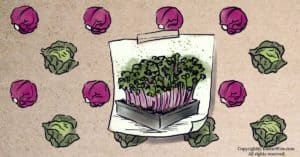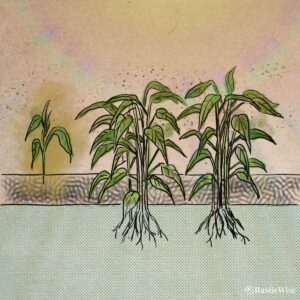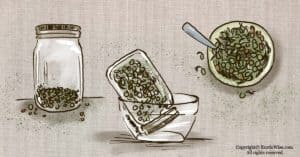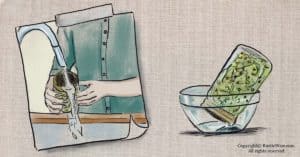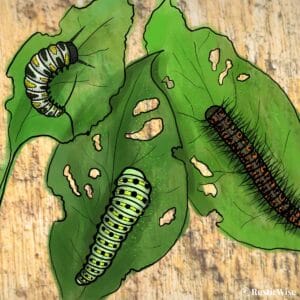Can You Compost Mushrooms? Up-Close-and-Personal With Fungi
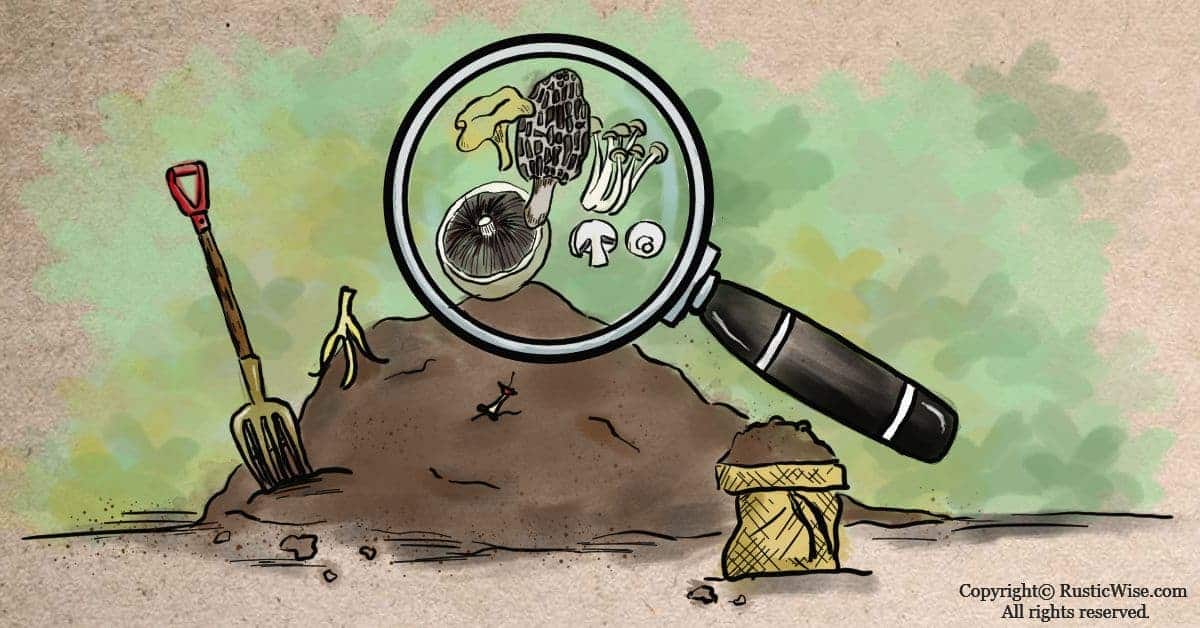
Whether you found a few toadstools in the yard, or if you have leftover mushroom scraps from dinner, you may be wondering, can you compost mushrooms? The short answer is yes! Mushrooms are a type of fungi that can be very beneficial to a compost pile by contributing to the existing fungal mycelia and further breaking down organic matter. If you see mushrooms growing in your compost pile, this is a sign of fungal presence in soil, and a sign that your pile is moist and cool—and perhaps contains too much “brown” or cellulose-based compost materials.
Mushrooms are the “fruit” of an underlying network of fungi. They grow and spread through spores carried by wind. Mushrooms sprout when they find a cozy habitat—a moist and slightly acidic environment.
Whether you have wild mushrooms, or commercial mushrooms from the grocery store, we’ll go over what you need to know about composting mushrooms.
How mushrooms help your compost
Composting mushrooms can be beneficial for improving soil quality and adding nutrients back into the ground where they belong.
Like other kitchen scraps like banana peels or coffee grounds, mushrooms add nitrogen to a compost pile when decomposed. But mushrooms add more than just nitrogen to your compost—here are a few benefits of mushrooms in compost:
Fun fact: A huge honey mushroom (Armillaria solidipes) in Oregon is estimated to be over 2,400 years old and spreads out over 2,000 acres of soil underground. It may be the largest organism in the world!
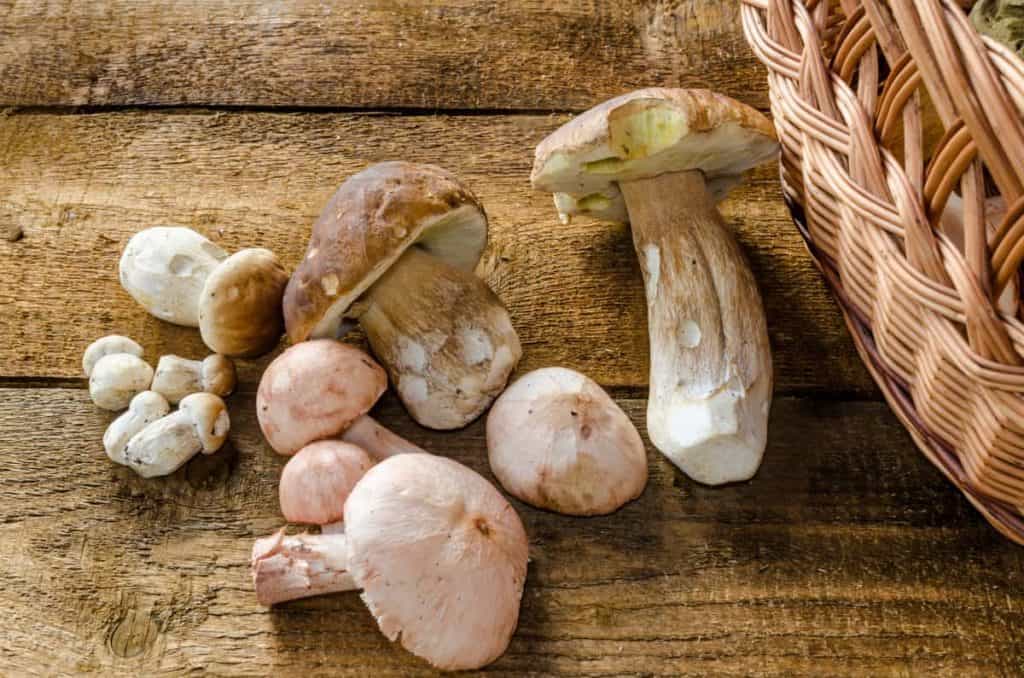
Why are mushrooms growing in my compost pile?
Sometimes after a period of heavy rain, you may notice a few small mushrooms pop up in your compost. This is generally nothing to worry about—mushrooms are merely the fruit of a mycelium network. When conditions are right (moist and cool), you may see a few toadstools appear.
Most mushrooms will disappear when conditions dry up. To prevent spores from spreading, and to keep young children or pets from eating any mushrooms, pluck them out, and bury them in the pile.
Mushrooms like to grow on “woody” materials such as decaying wood, dry leaves, and other materials high in cellulose. Make sure you feed your compost with a good balance of both nitrogen-rich “green” materials such as kitchen scraps to balance it with the carbon-heavy “brown” materials (leaves and branches).
It’s a good idea to turn your compost pile more frequently too, if you haven’t been doing so. This helps break up the underground network of mycelium below the compost’s surface.
Safety note: Many mushrooms are poisonous. Please do not eat any mushrooms you haven’t identified. Keep your yard safe for young children and pets by removing any mushrooms within reach.
What about mushrooms growing in my yard?
Mushrooms on the lawn are the bane of every homeowner who covets a pristine patch of green. While they may be a nuisance, the presence of mushrooms indicate good things happening below ground.
Small, delicate networks known as fungal hyphae develop deep underground. Some attach to the roots of plants eventually creating far-reaching filaments that are capable of transmitting nutrients across large areas.
Plants and hyphae work together. Soil bacteria and fungi work by breaking down complex proteins, carbohydrates, and fats into more simple elements which can then be absorbed by plants as nutrients. In return for their help, plants feed soil bacteria and fungi with sugars produced during photosynthesis.
When plants and fungi work together, they’re called mycorrhizae. Mycorrhizae help to improve soil structure and also help reduce soilborne pathogens, and prevent root-based diseases.
But as we mentioned above, mushrooms can be dangerous if you have little ones or pets around. So, rake them up, or mow over them, and bury them in your compost. While the fungal network remains underground, at least the “fruits” of the network aren’t free to spread its spores.
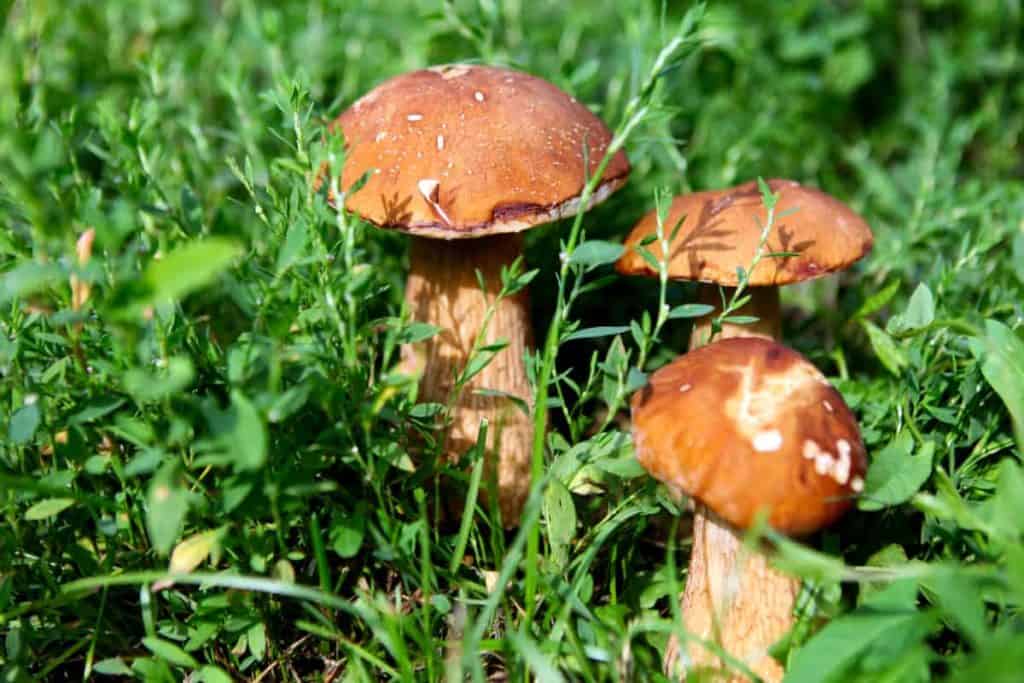
Can you compost cooked mushrooms?
If you sautéed your mushrooms in a buttery garlic sauce, you may want to go easy on adding too much of this to your compost bin. Anything with too much oil, butter, or dairy may cause problems in your compost bin. Fatty foods are harder to break down, may create an oily barrier, and decrease airflow—all unfavorable things in a compost!
You could try rinsing any savory mushrooms to remove excess oils before adding to your compost.
How to add mushrooms to your backyard compost
All types of edible and wild mushrooms are compostable. A few examples of edible mushrooms you can throw in your compost include:
- Chanterelle
- Cremini
- Enoki
- Morel
- Oyster
- Porcini
- Portabello
- Shiitake
The best way to add mushroom scraps into your compost pile is by digging a hole in the middle of the compost heap, and burying the mushrooms there. If you have other “green” compost ingredients that break down quickly such as veggie and fruit peels, or coffee grounds, mix your mushrooms together with these ingredients.
The center of the pile is rife with microorganisms and fungi which will help decompose matter quickly.
Placing mushrooms in the middle of the heap also deters young children or pets from accidentally eating a potentially poisonous mushroom; and in the case of cooked mushrooms, discourages backyard pests and rodents from finding a tasty snack.
Cover the mushrooms with other materials such as leaves, grass clippings and wood chips.
Can you add poisonous mushrooms to a compost?
If you have a hot compost, it may kill most mushroom spores, along with weed seeds, and other harmful pathogens. Unfortunately, most backyard composts either: a) don’t get hot enough; or b) don’t sustain the hot temperature for long enough. This means some seeds and spores may remain in the finished compost and a few random mushrooms may pop up here and there.
After knowing this, it’s probably not a good idea to throw in any mushrooms you know are poisonous—you don’t want to take the chance of any poisonous shrooms growing around your yard if you have young kids or pets.
However, if you accidentally threw in some poisonous mushrooms into your compost, chances are, they will break down over time and not pose much of a problem. If you are worried about this, you can either let your compost sit for an extra season to further breakdown.
Or, the University of Georgia Extension says you can pasteurize compost in your oven for 30 minutes at 160 degrees Fahrenheit (71 degrees Celsius).
Can you feed your worms mushrooms?
Yes, commercial, edible mushrooms are safe to add to a vermicompost. Leftover scraps from preparing dinner are perfect to throw in. In fact, mushrooms can be part of your worms’ regular diet. Avoid adding mushrooms that are heavily coated in butter or oil as this may create anaerobic conditions leading to rancid smells in your enclosed bin.
The takeaway: can you compost mushrooms?
Mushrooms are a type of fungi that can be very beneficial to a compost pile by contributing to the existing fungal mycelia and further breaking down organic matter. So, the answer to the question, is yes, you can definitely compost mushrooms!
Related questions
Do fungicides work on mushrooms?
It’s not recommended to use fungicides on mushrooms in your yard or garden. Not only do they introduce unwanted chemicals to your yard, they’re not really effective at getting rid of mushrooms.
As we mentioned above, mushrooms are the fruit of a mycelium underground network. While fungicides may appear to temporarily work by getting rid of surface mushrooms, they don’t reach the “roots” which are often several feet below ground.
You can reduce the chance of mushrooms spreading spores by plucking them, and burying them in your compost pile. They may unfortunately return again next year.
What is mushroom compost?
If you’re looking for a nutrient-rich soil amendment, mushroom compost is popular amongst many gardeners. While it’s called mushroom compost, it’s actually spent mushroom substrate (SMS)—this is the leftover growing medium used by mushroom farmers to grow their shrooms on. This is often a mixture of straw, hay, used horse bedding, horse and/or chicken manure, peat moss, and residual cocoa shells, corn cobs, and other organic materials.
Read up more on the differences between cow manure vs. mushroom compost here.

References
- Georgia Tech Biological Sciences, Organismal Biology, Fungi, https://organismalbio.biosci.gatech.edu/biodiversity/fungi-2/. Accessed June 2021.
- Harvard School of Public Health, Mushrooms, https://www.hsph.harvard.edu/nutritionsource/food-features/mushrooms/. Accessed June 2021.
- University of New Hampshire Cooperative Extension, Why are there so many mushrooms coming up in my yard and garden, and what can I do about them?, https://extension.unh.edu/blog/mushrooms-in-lawn. Accessed June 2021.
- Oregon State University, Mushrooms can mean healthy soil, https://extension.oregonstate.edu/news/mushrooms-can-mean-healthy-soil. Accessed June 2021.
- University of Georgia Extension, Composting and Mulching, https://extension.uga.edu/publications/detail.html?number=C816&title=Composting%20and%20Mulching#Uses. Accessed June 2021.
- Chittenden Solid Waste District (CSWD), Composting with Worms, https://cswd.net/composting/composting-with-worms/. Accessed June 2021.

Author: Josh Tesolin
Josh is co-founder of RusticWise. When he’s not tinkering in the garden, or fixing something around the house, you can find him working on a vast array of random side projects.



